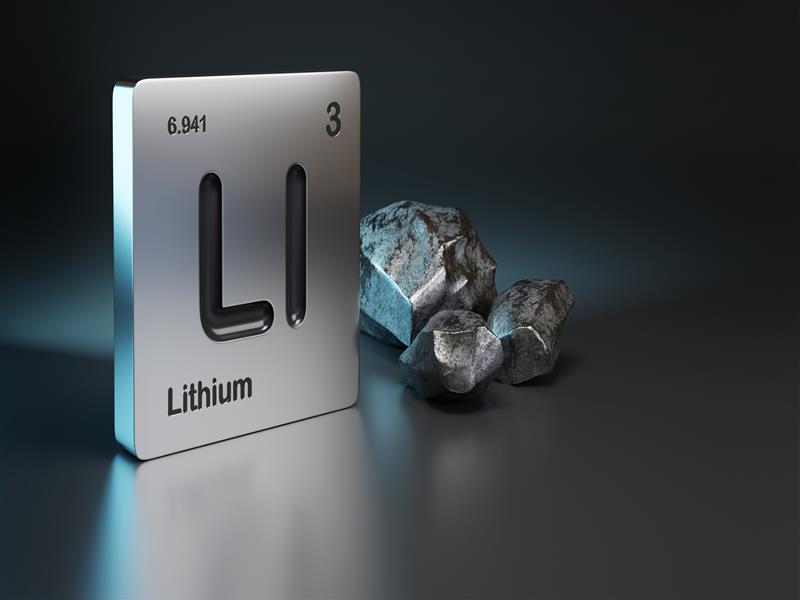
13-Feb-2023
India Finds Huge Lithium Reserves, what will be its impact
Lithium is a key material used in the production of many electronics, from laptops to cell phones. Recently, India has found huge reserves of lithium on its soil. This discovery has sparked debates about the effect it will have on India’s economy and global markets.
We will look at how India could gain from its newly discovered resources and what other countries should be paying attention to as well.
India has found large lithium reserves in the southern state of Karnataka, which is set to transform the country into a major player in the global lithium market. The discovery is expected to have a significant impact on the Indian economy and could help to reduce the country's dependence on imported lithium.
Lithium is a key component in batteries, and the new reserves are estimated to be sufficient to meet India's demand for many years. The discovery will also enable India to develop its own battery industry and create jobs in a sector that is currently dominated by China.
The Indian government is now working on a plan to exploit the new reserves, and it is hoped that they will be able to bring them into production within the next five years. In the meantime, India will continue to import lithium from other countries, including Australia and Chile.
If I talk about it's usage, Lithium is used in a variety of products, including batteries, alloys, glass, and ceramics. It is also used in some pharmaceuticals and as a treatment for bipolar disorder.
India has found huge reserves of lithium, which could have a major impact on the country's economy. The discovery was made by the Indian Bureau of Mines (IBM) in the state of Karnataka.
The reserves are estimated to be around 14 million tonnes, making India the sixth largest holder of lithium reserves in the world. The find could potentially transform India into a major player in the global lithium market.
Currently, China is the world's largest producer of lithium, with Australia a close second. If India can develop its own production capabilities, it could reduce its dependence on imported lithium and become a major player in the global market.
Do you know India is the world’s second most populous country with over 1.3 billion people, and it is projected to be the world’s most populous country by 2027. India is also the world’s fastest-growing major economy, with an annual growth rate of 7.5% in 2016. In contrast, the global economy grew at a rate of only 3.2% in 2016. India’s economic growth has been driven by a number of factors, including a young and growing population, rising incomes, and increasing investment.
One of the key inputs for industries and power plants is electricity, which in turn is generated from various sources like coal, hydro, nuclear, solar, wind etc.
Of these sources, coal has been the dominant source of electricity generation in India accounting for about 60% of installed capacity. As per ministry estimates, coal will continue to dominate the energy mix and meet about 55-60% of our energy requirements until 2040-2050 barring any large scale breakthrough in technological advancements in other sectors such as renewable energy (RE).
This share can rise or fall depending on several factors such as cost competitiveness vis-à-vis other generation sources as well as policy interventions. Solar and wind currently account for around 8% of installed capacity but their share is projected to reach 18-20% by 2040-2050 under a business as usual (BAU) case scenario where no ambitious policy measures are adopted to boost renewables.
India's newfound lithium reserves are a big step towards ensuring energy security and promoting economic growth. India can now increase its dependence on renewable sources of energy, reduce its reliance on foreign imports, create jobs for skilled workers in the country and generate more revenues from exports. It is indeed a victory for the nation which will have far reaching implications both domestically as well as internationally

SEO and Content Writer
I am Drishan vig. I used to write blogs, articles, and stories in a way that entices the audience. I assure you that consistency, style, and tone must be met while writing the content. Working with the clients like bfc, varthana, ITC hotels, indusind, mumpa, mollydolly etc. has made me realized that writing content is not enough but doing seo is the first thing for it.
Join Our Newsletter
Subscribe to our newsletter to receive emails about new views posts, releases and updates.
Copyright 2010 - 2026 MindStick Software Pvt. Ltd. All Rights Reserved Privacy Policy | Terms & Conditions | Cookie Policy